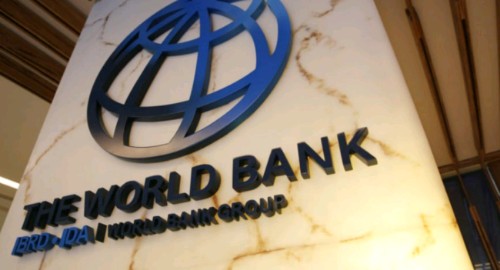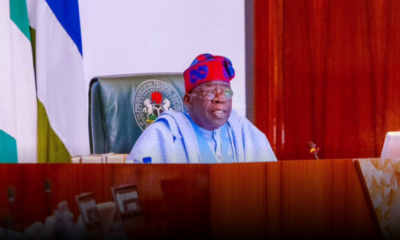The World Bank says Nigeria’s growth has been stagnant in the past decade despite its huge potential.
The bank said this in its latest report titled, ‘Nigeria country economic memorandum: charting a new course’, published on its website.
In the report, the bank said Nigeria’s potential and growth has been stagnated over the past decade.
It noted that the country needs create more jobs to rise to its potential.
“Nigeria has vast potential, but development has stagnated over the past decade,” the report reads.
“Nigeria has the potential to be a giant on the global stage. But, despite this potential, Nigeria is struggling to keep pace with the GDP growth rates and economic transformation of its peers.
“Creating better jobs is a necessary condition for accelerating poverty reduction and economic transformation. However, even if job creation were to catch up with the expansion of the labor force, Nigerian workers would not fully benefit if other socio-economic conditions remain unchanged.
“Unlocking private investment is the only way to create more and better-quality jobs in a sustainable manner.
“The hard-won income gains from the 2000s evaporated between 2011 and 2021, due to the lack of deeper structural reforms, global shocks, conflicting macroeconomic policies, and increased insecurity. But, attracting private investment requires solid macroeconomic foundations, which have weakened in recent years by unlocking private investment, which is pre-conditioned on having a stable macroeconomy.”
The global bank, therefore, said for the country to have inclusive growth, there is a need for macroeconomic and institutional enablers and investment accelerators.
“To catalyse private investment and offer more opportunities to the youth, the priority is to restore and preserve macroeconomic stability.
“While there is no silver bullet to accelerate growth, Nigeria can become a rising growth star again if it implements a comprehensive set of bold reforms in a timely manner.
“Nigeria can still chart a sustainable and inclusive growth path based on solid economic institutions with a sound macroeconomic environment that reduces regional disparities, strong human capital that will help children reach their full potential and acquire the skills needed for a modern economy, and productive firms that create more and better jobs.”
Consequently, the World Bank highlighted key reforms that Nigeria’s government can adopt for faster and more inclusive growth.
“Adopt a single and market-reflective exchange rate. Facilitate trade and boost domestic value added by removing import and foreign exchange restrictions. Increase non-oil revenues by raising value-added tax (VAT) and excise rates and strengthening tax administration.
“Eliminate the petrol subsidy by establishing a compact which also protects the poor and vulnerable. Increase access to finance by strengthening the institutional. Contain inflation by reducing the federal infrastructure for financial intermediation government’s recourse to Central Bank Nigeria (CBN) financing.
“Boost competition by embedding it into policy, enhancing enforcement, and simplifying rules to lower costs. Boost power generation by investing in infrastructure to reduce technical and commercial losses. Reduce insecurity by strengthening the rule of law facilitate transport connectivity by reducing interstate transportation costs.”

 BIG STORY2 days ago
BIG STORY2 days ago
 BIG STORY4 days ago
BIG STORY4 days ago
 BIG STORY3 days ago
BIG STORY3 days ago
 BIG STORY4 days ago
BIG STORY4 days ago
 BIG STORY3 days ago
BIG STORY3 days ago
 BIG STORY2 days ago
BIG STORY2 days ago
 BIG STORY1 day ago
BIG STORY1 day ago
 BIG STORY8 hours ago
BIG STORY8 hours ago






















